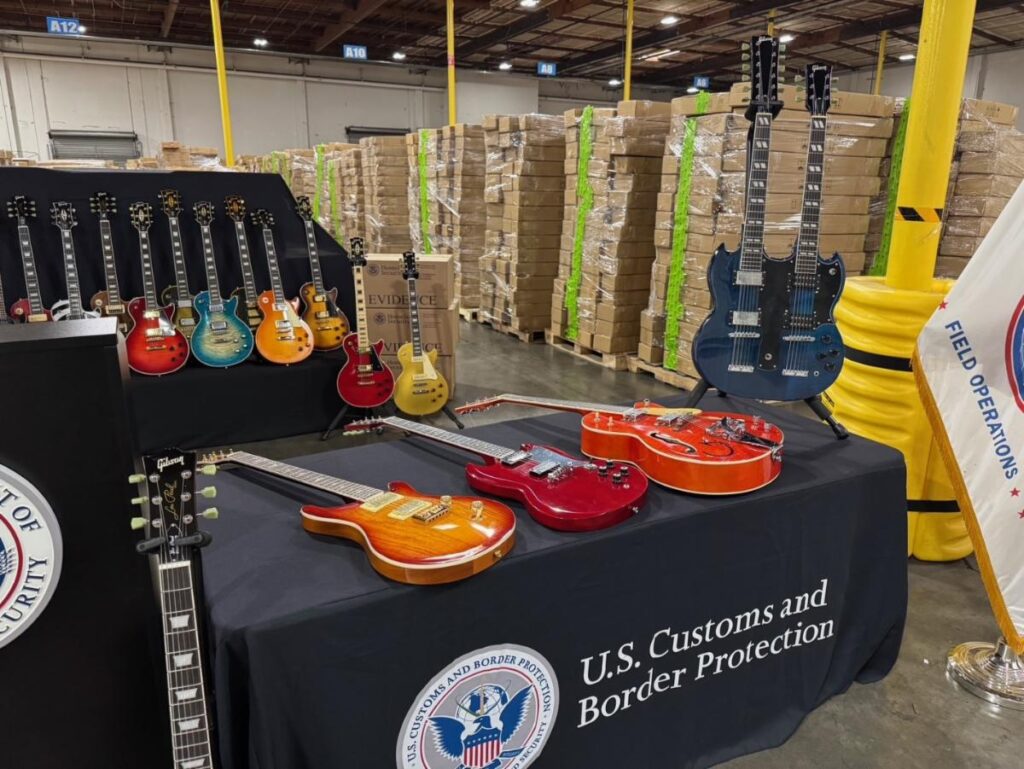
Some of the country’s largest national security agencies — including U.S. Customs and Border Protection — are investigating an unexpected crime wave with ties to Nashville.
A law enforcement task force announced this week that it had intercepted more than 3,000 counterfeit Gibson guitars. Had the instruments been legitimate, they would have been worth about $18 million.
Gibson is based here in Nashville, where the company manufactures its Les Paul electric guitars. That’s one popular model for fraudsters.
Beth Heidt, Gibson’s chief marketing officer, said during a Tuesday press conference that counterfeit guitars can be dangerous to a player’s health and safety. The products are often made with inferior materials. Real manufacturers have sanitation regulations in their facilities, but those don’t exist for fraudulent builders.
“This is really emotional and personal for us — not only because of the protection of our players,” Heidt said. “But because of our Gibson team at large — including the artisans at our craftories in Nashville, Tenn. and Bozeman, Mont., who … have dedicated their entire lives to handcrafting Gibson instruments.”
The company has been fighting against counterfeits on a few fronts. When it comes to more legitimate manufacturers, Gibson has been going after copycats in court, using trademark law.
When it comes to these overseas counterfeits, the company has been working with law enforcement agencies like the CBP, the Department of Homeland Security and the Los Angeles Sheriffs Department.
“These fraudulent guitars may look and feel legitimate for unsuspecting consumers buying them from third party online sources, street markets, unauthorized retailers, and person-to-person transactions,” said Cheryl M. Davies, CBP Director of Field Operations in Los Angeles. “As we approach the busy holiday shopping season, consumers should pay attention on where they are buying these goods and how much they are paying, and if is too good to be true it probably is.”
Gibson has an online portal for reporting fakes. It asks for the model, a link to the seller and allows image uploads.
Dozens of guitar forums, seller sites and blogs offer tips on spotting fake Gibsons. The retailer Sweetwater warns that although counterfeit guitars have been around for a long time, “these days it’s almost an epidemic.”
Common tips:
- New Gibsons come with a case — hardshell ones for higher-end models. If it’s missing a case, be skeptical.
- It should also come with a manual and warranty card.
- The Les Paul model script should be in cursive.
- Make sure the mother-of-pearl pieces on the fretboard are actually inlaid.
- The truss rod on counterfeits can be tightened with an Allen wrench.
- There shouldn’t be any paint in the control cavity at the back of the guitar. Fakes will often have sawdust and other contaminants in the cavity.

